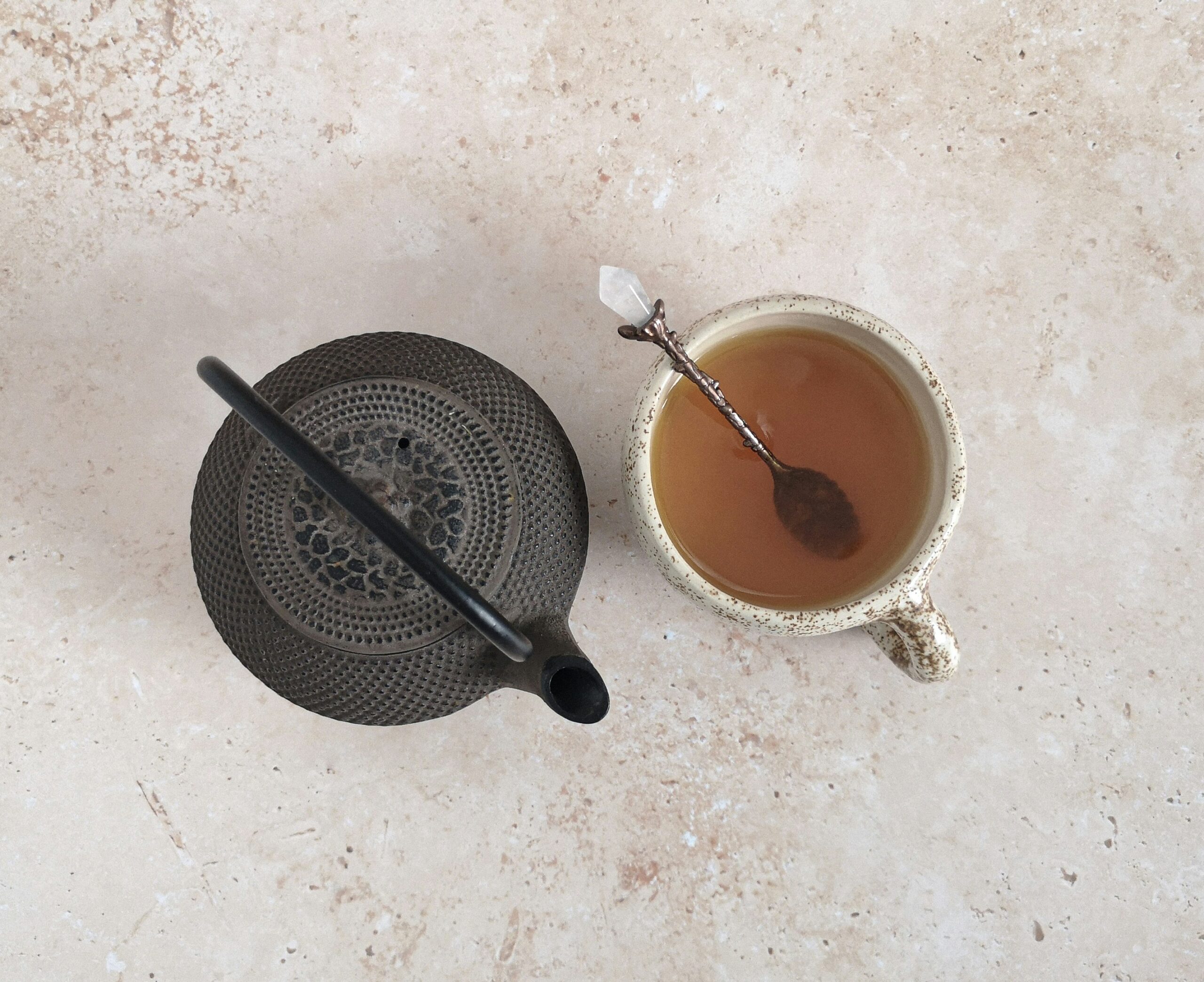
If there is one thing I do not like about the colder weather – it’s that flu season!
With the flu season about to head in full swing, exploring natural and herbal remedies can offer comforting alternatives to conventional medicines.
These remedies, often derived from plants, have been used for centuries to help with flu symptoms and support the body’s immune response. While modern medicine provides effective ways to fight flu viruses, herbal remedies offer a complementary approach that can be gentle and soothing. Just like that perfect warm hug you want when you’re feeling blue.
Understanding how these natural options work may give you an effective arsenal against the irritating symptoms of the flu.
In addition to their potential symptom-relieving effects, many herbal remedies can boost the body’s defences and may assist in the overall recovery process. Incorporating warm teas, steam, and other natural methods might reduce discomfort and promote rest, which is crucial for recovery.
It’s important to remember, however, that while these remedies can provide relief, they are not substitutes for professional medical treatment, especially if your symptoms are severe or persistent. Remember to always seek your health practitioner for professional advice!
Key Takeaways
- Herbal remedies can provide natural relief for flu symptoms.
- Natural methods, like teas and steam, can complement the body’s healing process.
- It’s important to consult healthcare professionals for severe or persistent flu symptoms.
What are we talking about today?
- Understanding the flu virus
- Differences between the flu and cold
- Common flu-like symptoms
- Herbal Remedies
- Popular Herbs for Flu Relief
- Supporting natural therapies
- Holistic approach to flu care
- Precautionary measures and when to seek medical advice
- Frequently asked questions

Ok, so what is the flu virus?
When you’re feeling under the weather, it’s important to know whether you’re dealing with the flu or just a common cold. The flu is a respiratory infection caused by influenza viruses, and it can lead to serious complications, unlike the common cold.
… and how is it different to a cold?
The common cold and influenza (flu) might seem similar at first glance, but they are caused by different viruses. A cold is typically milder and more likely to cause a runny or stuffy nose. In contrast, the flu can knock you off your feet with more intense symptoms such as:
- High fever
- Body aches
- Fatigue
In a nut shell, flu is the more serious one.
Your experience with the flu might include a variety of symptoms. Common ones include:
- Cough
- Sore throat
- Fever
- Chills
- Headaches
- Fatigue
Unfortunately, the flu can also lead to severe complications like pneumonia, especially in vulnerable groups. These complications can be more than just uncomfortable—they could lead to hospital stays or even be life-threatening (if we’re talking worst-case scenario here). Keep in mind the flu impacts the body’s respiratory system, which includes your nose, throat, and lungs.
herbal remedies for the flu … help me say goodbye to the snuffles!
When it comes to combating flu symptoms, herbal remedies can be a supplementary option to consider along with your usual health care practices. These remedies have been utilised for centuries due to their potential antiviral properties and immune system support.

Potential benefits of herbal remedies
ANTIVIRAL ATTRIBUTES: Certain herbs have been recognised for their natural antiviral characteristics, which may help in the fight against the flu. By using these herbs, you may aid your body’s ability to fend off viral infections.
IMMUNE SYSTEM SUPPORT: Herbs can serve as a form of natural remedies that contribute to the strengthening of your immune system. A robust immune system is your first line of defence in preventing illness and hastening recovery.
Tell me the herbal arsenal for fighting the flu!
Herbal plants, like Echinacea and elderberry, offer a natural approach to managing your flu symptoms. Incorporating them into your wellness/mindfulness routine could potentially lessen the impact of the flu and support a quicker recovery.
Check out the mindfulness routine post to get you started here!
However, it’s always best to consult with your healthcare provider before starting any new herbal regimen, especially if you have pre-existing health conditions or are taking other medications.
HERE’S SOME POPULAR ONES TO ADD TO YOUR HERBAL MEDICINE CABINET
Echinacea: This herb is widely known for its capability to enhance your immune response and may reduce the duration of the flu.
Elderberry: A favoured remedy, elderberry is used for its potential to alleviate flu symptoms and shorten the time you’re under the weather.
Ginger: This spice is not only warming but could also help relieve uneasy stomachs, a common flu symptom.
RELATED
The So-Called Healing Power Of Herbal Tea – An Introduction

Garlic: With its natural compounds, garlic is believed to have immunity-boosting properties.
Honey: Often used to soothe sore throats, honey can also be paired with other herbs to enhance their effects.

Hit the flu with all you got – with some supportive natural therapies
When you’re fighting that big bad flu, your body needs all the help it can get. Support through natural therapies can be incredibly beneficial. Here are some ways to assist your body’s healing process with hydration, rest, and recovery … so that you can get back to your life ASAP.
Hydration and Fluids
Hydration is crucial when fighting the flu. Your body requires fluids to fend off the infection and aid in recovery. Begin with:
- Water: Aim for at least eight 8-ounce glasses daily to keep mucous membranes moist and to help manage fever.
- Herbal Tea: Sipping on herbal teas can be soothing and may provide additional benefits, depending on the herbs used. Check out our post on uncovering the healing prowess of herbal teas here!
Chicken Soup: Often praised as a comfort food, it also helps to keep you hydrated and may reduce congestion.
Rest and Recovery
Do not underestimate the power of a little R&R! Sleep and rest are non-negotiable when it comes to your recovery. Ensure you:
- Prioritise sleep: Aim for 7-9 hours of quality sleep to allow your body to repair itself. Having trouble sleeping? Check out my post on mindfulness apps to help you catch some ZZZZs here!
- Incorporate relaxation with rest: Set up a comfortable space where you can relax and take naps as needed.

Remember, supplements like Vitamin C and Zinc can play supportive roles, but they are not substitutes for medical advice or antiviral medications. Always consult with a healthcare provider when considering supplements for flu treatment.
Holistic Approach to Flu Care
When you come down with the flu, your first thoughts may turn to relief from the unpleasant symptoms and bolstering your body’s defenses.
A holistic approach to flu care focuses on supporting your immune system’s natural ability to fight illness, and using natural methods to ease those pesky symptoms like coughs and congestion.
Immune System Strengthening
To keep your immune system in top shape, start with your diet. Include plenty of:
- Vitamin C-rich fruits like oranges and kiwis.
- Foods with zinc such as pumpkin seeds and spinach.
Regular sleep and moderate exercise also play a critical role in maintaining your immune health.
Alleviating Symptoms Naturally
For irritating throat symptoms, including sore throat and cough:
- Gargle with salt water to soothe your throat.
- Drink herbal teas with honey to suppress the cough.
Ease congestion and body aches through:
- Use of a humidifier to help clear mucus in your airways.
- Adding a few drops of eucalyptus oil in a steam bath can open up your nasal passages.
- Employ the technique of nasal irrigation with a neti pot filled with saline solution to flush out phlegm.
Precautionary Measures and When to Seek Medical Advice
It’s critical to tackle the flu with two strategies: active prevention and knowing exactly when to see a healthcare provider. These steps help manage the illness and prevent serious complications.
Preventing the Spread of the Flu
Preventing the flu starts with you. Regular handwashing, wearing a mask, and getting vaccinated can drastically reduce your chances of catching or spreading the virus. Specifically:
- Handwashing: Frequent and thorough handwashing with soap can prevent the spread of the flu virus.
- Vaccination: Annual flu vaccines are your first line of defense and can reduce the risk of becoming ill.
- Mask-wearing: In crowded places, particularly during flu season, masks can help protect your respiratory system.
Maintaining a healthy lifestyle, including adequate sleep, regular exercise, and a balanced diet, helps boost your immune system, which is essential in preventing illness. Also, managing your stress levels is important, as stress can weaken your body’s immune response and increase your susceptibility to infections.
Recognizing When to Consult Healthcare Providers
You should be ready to consult healthcare providers if you experience severe symptoms or are in a high-risk category. Here are specific situations where professional medical advice becomes vital:
- High Fever: A persistent high fever that won’t break might warrant antiviral medication to help reduce its duration.
- Difficulty Breathing: If you experience significant difficulty breathing or shortness of breath, seek medical attention immediately.
- Risk Groups: Pregnant individuals, older adults, and those with chronic health conditions such as heart disease or diabetes should consult their healthcare provider at the first sign of flu symptoms.
Antiviral Drugs: Medications like oseltamivir (also known by the brand name Tamiflu) may be recommended by your healthcare provider to help reduce flu severity and duration if taken within the first 48 hours of symptom onset.
Remember that antibiotics are not effective against the flu, as it is a viral and not a bacterial infection. If your symptoms persist or worsen, it’s crucial to reach out to your healthcare provider for the possibility of an antiviral drug prescription or further treatment.
Frequently Asked Questions
In this section, you’ll find answers to common questions about herbal remedies for flu relief and how you can use them to feel better faster.
What are some effective old-fashioned remedies for flu relief?
Old-fashioned remedies like warm broth and elderberry have been used for generations to ease flu symptoms such as congestion and body aches. While science is still exploring the full effectiveness of these remedies, they remain popular for their comforting qualities and potential health benefits.
Which homemade remedies can help alleviate flu and cough symptoms?
To help with flu and cough symptoms, homemade remedies such as ginger tea can soothe a sore throat while its antimicrobial properties may offer relief, and steam inhalation can help clear nasal passages. Moreover, concoctions with anti-inflammatory properties such as sage tea might also be beneficial.
How can one quickly recover from the flu using home treatments?
While there’s no instant cure for the flu, getting plenty of rest, staying hydrated with fluids like herbal teas, and using humidifiers to maintain moisture in the air can all support a quicker recovery. Nasal irrigation might also lessen the duration of symptoms.
Are there any specific home remedies that work best for adults with the flu?
Adults may benefit from remedies such as zinc supplements to potentially lessen the severity of symptoms. Additionally, maintaining good hygiene and nutrition is crucial; some spices like turmeric added to foods or drinks might help due to their anti-inflammatory effects.
Can honey be used in any homemade remedies to combat the flu?
Honey is a natural sweetener that can be added to tea or lemon water, which may offer throat soothing effects and serve as a cough suppressant. It’s important to use honey responsibly and only for those over one year of age.
What are safe and gentle flu home remedies suitable for children?
For children, simple remedies like proper hydration, chicken soup for its comforting warmth and nutrients, and a warm bath to help reduce fever can be effective. Use gentle remedies and avoid any treatment not recommended for children’s particular age group.



Comments +